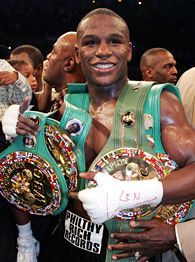 Three (must have) keys to success in sports are good instruction, practice and repetition, and most importantly – trust in your skills.
Three (must have) keys to success in sports are good instruction, practice and repetition, and most importantly – trust in your skills.
Many people have a false assumption about learning a new technique such as throwing over the top, or staying on-top of the ball. Some coaches think that once they teach athletes a new technique the athlete should be able to apply it right away. Likewise, some athletes believe that they should be able to make adjustments in their game, and have it pay off right away. Change doesn’t happen overnight.
When you expect change to happen overnight such as learning a how to pitch from the stretch, you are setting yourself up for failure. Athletes must practice what they learn in order to put it into action. Why? Old habits are hard to change. So anytime you learn something new (or teach something new), it takes a lot of repetition to change.
But even then, athletes struggle with applying what they learned and practiced to competition. This is when the third key to success comes into play…
Learning, practice, and repetition alone sometimes fall short. The third and most important key to success (which is more about the mental game) is when athletes trust in their skills and what they learned.
You or your players might have outstanding form or technique, but you must have trust in what you have learned in practice in order to apply it in competition. A lack of trust in ones skills is the top reason athletes can’t repeat – in competition – what they do easily in practice every day.
What’s the cause for a lack of trust? Several mental game barriers can get in the way:
- Fear of failure
- Perfectionism
- High expectations
- Focusing on results, rather than the process
- Pressure of playing in the big game
The concept of trust applies universally from youth to professional athletes. To perform your absolute best – with consistency – you must trust in what was learned from practice.
How do you learn to trust in your skills in competition?
You start by overcoming the mental barriers I listed above. Then, you have to become a performer and allow your skills to happen. This is what we refer to as a performance mindset.
Great athletes have both a training mindset and a performance mindset. The performance mindset is the ability to rely on practice, play freely, and let it flow. Athletes in the performance mindset are confident in their skills and ability to put their performance on auto-pilot. Athletes who have in a performance mindset describe their performance as in the groove, instinctive, unconscious, natural, flowing, and effortless. Get out of your own way and stop over controlling your body or over-coaching yourself. Remember that change doesn’t happen overnight. It takes good instruction, practice and repetition, and trust in your skills to be successful in sports.


























Great post and thanks for sharing this information. Your articles have been very helpful. I look forward to reading more.
Thanks for the insightful & practical information. This will help fine tune my son’s boxing skills. The advice is, simple, direct & to the point.
l do really appreciate u.I was outstanding and assisted me a lot.love ur website